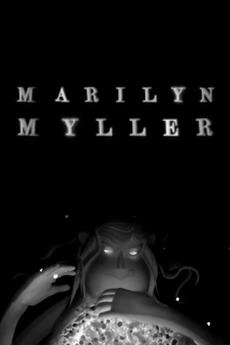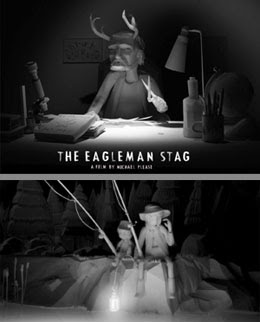Composing the score for Robin Robin (Aardman / Netflix)
- TheBookshopBand .

- Nov 28, 2021
- 6 min read
Robin Robin is out now on Netflix and you can listen to the
original motion picture soundtrack album now on Spotify.
The Animated Journey In 2006 my brother Mikey Please began making short animations, first for fun and then at college (where he also had fun). Short beautiful animated experiments with stories he'd written. He turned to me for his source of creatively matched (free) musical and sound design labour. From the shadow puppet quirkiness of Glen's Gloves, to the comically twisted Crone. In 2009 Mikey went to the RCA to do a masters in Animation and his final project was The Eagleman Stag, based on a short story he'd written years earlier. I had fun collecting all the sounds from our childhood home and garden, and also meeting and collaborating with Beth Porter for the first time who was part of a string quartet called The String Beans (now Red Carousel) who I used to record some of the score for the film using a cheap microphone cellotaped to the side of a stool. The film went on to win a BAFTA the following year and (was even long listed for an Oscar) and spurred Mikey on a series of other ambitious animated shorts, Marilyn Myller and then into colour for Alan The Infinite, now collaborating with his friend and co-director, Dan Ojari. The scores became progressively more ambitious too, involving two microphones strapped to a chair and a carousel of musicians, flutists to opera singers, booked for 10 minute slots at a time to come and stand in front of this chair and play their musical contributions into the evolving scratch orchestra.
The Pitch and Scratch In 2019 Mikey told us that Dan and him had been pitching to Aardman a seasonal musical called Robin Robin, about a baby Robin that gets adopted by a family of mice. Aardman had bitten and shortly after Beth and I were asked to spend a couple of weeks writing scratch music to help them develop the story. We were on tour with our daughter Molly, and so we spent the best part of two weeks in other people's kitchens writing and recording ideas for the main songs in the film. We only had one mic (a nice little Gefell M300 for those who want to know), but this time we had a mini mic stand! There were washing machines, Molly's watching of films, cars, alarms in the background, but I think what is amazing is that most of those recordings actually made it into the final film. They were only ever intended as scratch recordings, but I think the pressure of trying to convince the directors and Aardman that they should like what we did meant that we actually tried to make them sound nice and "orchestral". There was also a spontaneity about them which would have been difficult for us to re-capture. A year or so down the line to the orchestral overdub recording session at Realworld, with the Bristol Ensemble under the baton of Drew Morgan, those free-flow recordings that made the final cut presented huge challenges to Drew as he conducted his heart out to keep the players in sync with our whimsical timings. What you get at the end though is something that still (we think) retains a freshness, despite it passing through an industrial-scale musical machine, because you really are hearing the first moments those notes were played in those recordings, but they are now backed by brass sections and supported by Welsh men's choirs. Beth used to clean the toilets at Realworld as her first job out of uni, so it was quite a moment for her to be sitting in the control room there in the composer's chair.
The Writing and Recording
After those first few weeks of scratch music writing we ended up being offered the job of scoring the whole film. It could not have come at a more fortuitous time as our year's plans for touring in the US had just been scuppered, along with everyone else plans, due to the encroaching pandemic. Spreadsheets were made, cues listed out, stories and animatics began appearing and we set to work cue by cue. Beth and I write together most of the time so our main issue was childcare, but we managed to get about an hour and a half a day as Molly donned her headphones and we made use of our Disney+ Channel subscription. I assume we work in a very non-standard way for film composers. Nothing is done on the computer, nothing in midi. Everything is recorded, ideas go down as if we are in the studio, and what comes out of the day is an actual recording which we know full well will not make it into the final film, as even if they like it the chances are very high that all the timings will change and we'll have to re-do it. It's a crazy way to work I'm sure, but it's how we it.
The songs were an interesting challenge as they came with pre-written lyrics by the directors, with their own intrinsic tempos and rhythmic structures that we had to unpick and weave into a melody. In many ways it was quite liberating to have that part of the process done. Many musical iterations were written but we often all ended up going back to the first one. When it came to recording we managed to get one session in person with the actors Gillian Anderson, Richard E Grant and Bronte Carmichael before everything went into lockdown and the rest of the sessions had to be conducted over Zoom. Unfortunately we never got to meet Adeel Akhtar.
Once all the cues had been written, and re-written, and re-timined to the new animatic, and re-recorded again to fit the new timings, and then re-timed and re-written and then re-timed and then re-written and recorded (all using the same mic) I headed down to Realworld to record a handful of soloists to augment our recordings with instruments we wanted but couldn't play ourselves. Long time collaborator Jools Scott played piano as his baby slept upstairs, Beth's sister Hannah Porter came to play violin and flute, great friend and player Pete Judge came in with his selection of brass instruments for Magpie, and Chris Cundy brought his bass clarinet to play the cat. We also recorded expert double bassist (the Whoo-mans) Emma Smith up in Dumfries on the way home. A Peter And The Wolf affair. My one epic lockdown trip was to purchase a dulcitone (an old mellow tune-fork piano) from The Unthanks to be Robin's instruments after a discussion with the directors. When I sent them a sample recording they immediately didn't like it, and so Beth's recorder became Robin's instrument. Luckily I quite like the dulcitone and so it stays in the studio.
Finally we handed everything over to Jools Scott and Adam Langston - two wonderful composers in their own right, to arrange extra parts for the orchestra to overdub at various points in the score. Huge string swells, percussive smashes, collier brass pads and angelic choirs. Each had to be recorded in it's own section due to corona restrictions on space which we did at Beth's old haunt Realworld, and at a new studio called Challow Park near Wantage for the slightly larger string section. The children's choir we had to record remotely which was beset with technical problems, but we somehow managed to get everything done. As each new layer came in the sound grew and grew, textural layers began to stack on to our quirky recordings but always leaving holes for all the others underneath to be heard. It was like travelling through a cloudscape - one thing envelopes you and then dissipates to show the view all around. The closest we'll get to magic.
The whole team at Aardman were brilliant - and what a treat to be carried through it by them.
The film Robin Robin is out now on Netflix, and if you would like to listen to the full score in all it's epic nakedness then that is available now on Spotify (and we hope on vinyl in the not too distant future on Lakeshore Records).
If you would like to find out more about our film score work, please visit: https://www.porterandplease.com


























































We provide Russian call girls in Delhi dedicated booking support available 24/7 to assist with complex logistics, last-minute cancellations, or urgent replacement needs promptly. Rely on the continuous operational excellence of our Escort Call Girls In Delhi agency.
baseball bros io is an appealing online baseball simulation game that combines exciting gaming elements with fast-paced action.
Connections Game is a daily game in which players attempt to identify common threads between words. In this game, participants try to form four groups of four words while limiting their blunders to four.